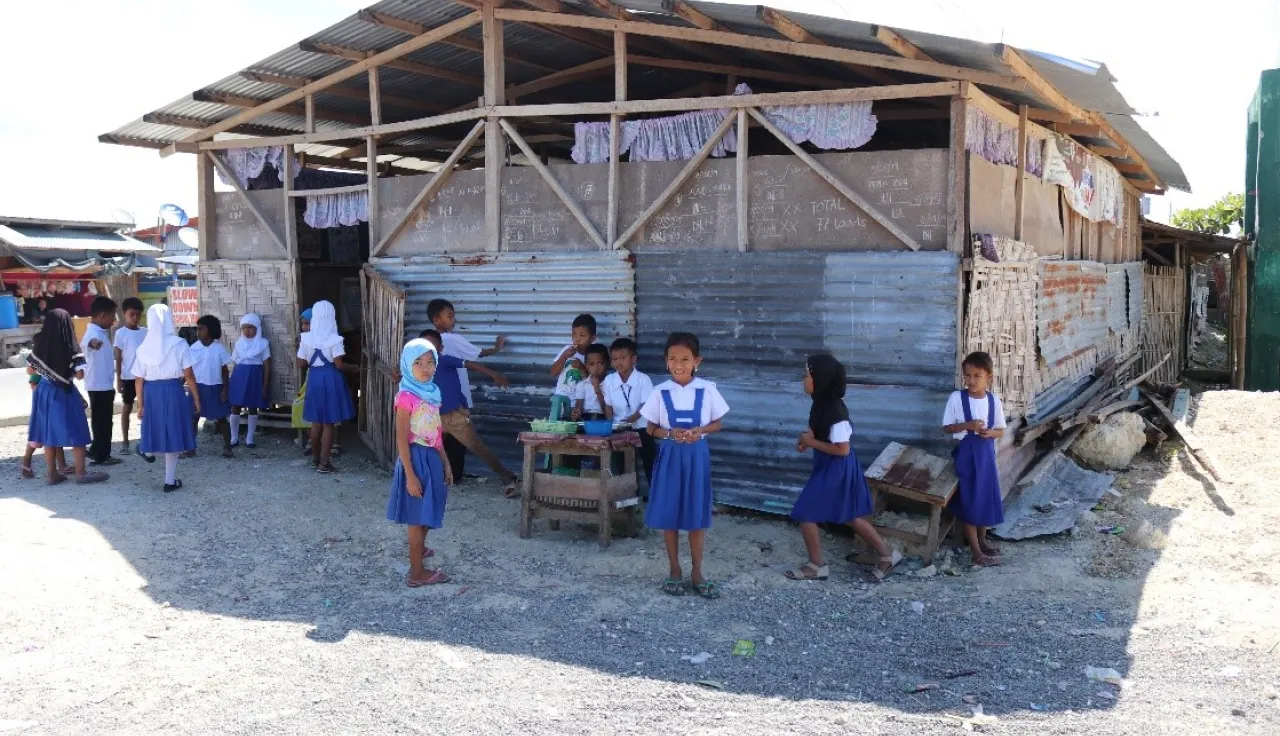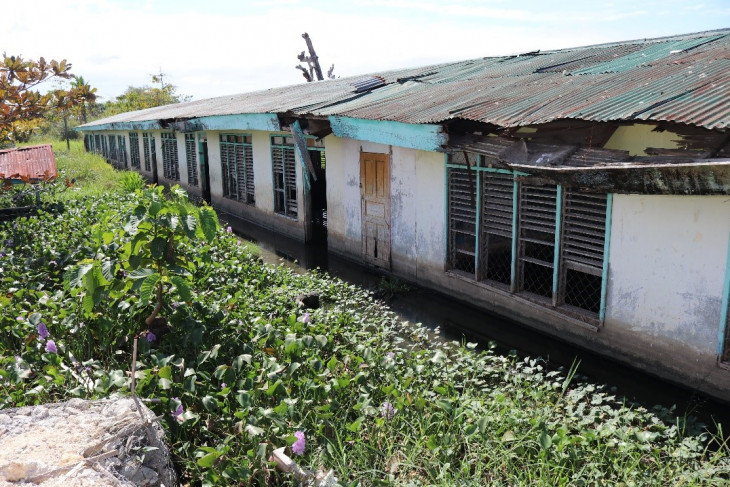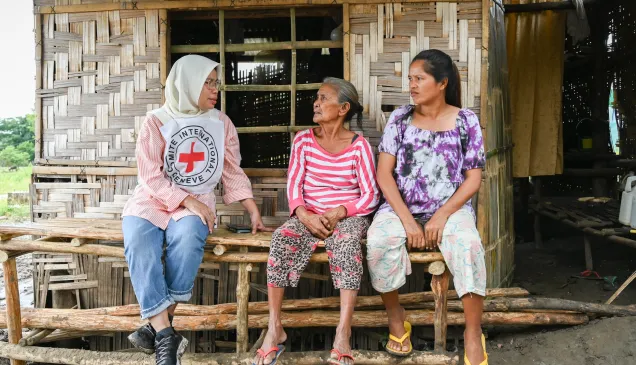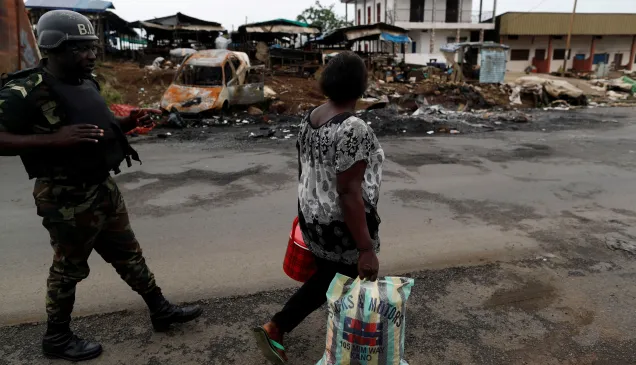Philippines: Amid floods and armed conflict, a safer space for students in Pagatin

With a safer space for their school, students and teachers of Pagatin renew their hopes for better learning.
Nasrah Abdulbayan longs for her old school, where she studied and played without worry.
Five years ago, she and her fellow Grade 3 students at Pagatin Elementary School in Datu Salibo town, Maguindanao, transferred to makeshift classrooms because of the damage caused by years of manmade and natural disasters.
Residents of Pagatin have been affected by armed conflict for more than a decade. The school was once hit by mortar shelling and had hosted families who fled their homes.
Apart from the violence, the residents faced prolonged flooding after heavy rains. The school was not spared.

Once full of life, the school lays abandoned, submerged in floodwater and now surrounded by water hyacinths. ICRC/Baipulo Sultan
“We found ourselves in a crowded classroom. We couldn't enjoy our break time because we had nowhere to play. We stayed in the classroom, afraid we might get hit by passing vehicles,” Nasrah said.
Classes were held in odd but vacant places: an extended portion of the mosque, verandas of private homes, even spaces outside sari-sari (variety) stores.
Seeing the students and teachers’ difficult situation, the school management asked private individuals for donations to fund the earth-filling of a space near the school.
In 2018, makeshift classrooms for around 270 kindergarteners up to Grade 6 students were built on the empty space. But it was near a busy highway.

Motorcycles and trucks regularly zoomed past the makeshift classrooms, making teachers and parents anxious about the students' safety. ICRC/Baipulo Sultan
“Because of the location, the children and even the teachers were prone to accidents. Moreover, students couldn’t participate actively in board work and teachers limited the activities in the crowded rooms. The children’s leisure time, which is very important for their social development, was also affected,” said teacher-in-charge Hadja Noriha Abdulkadir.
Students also complained that the classrooms were crowded and hot.
The International Committee of the Red Cross (ICRC), which helps to improve access to education in conflict areas, decided to help Pagatin Elementary School to have a more conducive study environment.
Its team of engineers assisted in compacting an embankment that provides a safer space for school structures. UNICEF and Save the Children supported the school with a temporary learning space. Temporary fencing was also installed around the area, keeping the children at safe distance of any drainage and flooded areas.

A permanent four-door communal latrine—a standard facility in every school—was also constructed with a rainwater harvester tank and a handwashing tub. With these, the students no longer need to go home or to nearby houses for their personal hygiene and sanitation. ICRC/Baipulo Sultan
“The project aims to improve the school's dire condition by turning it into a more conducive learning environment. Parents would be confident knowing their children are learning and playing in a safer place, where there is also access to sanitary facilities,” said Abdul Rauff Macapeges, ICRC’s water and habitat engineer based in the Cotabato sub-delegation.

The project is seen to provide sufficient learning areas for students, as well as ample space for permanent learning structures in the future. ICRc/Baipulo Sultan
A stage was built on the compacted embankment for a commencement exercise in March, but it was cancelled because of the COVID-19 pandemic. The school also initiated the construction of a temporary learning space for Grades 1 to 4 in June. The classrooms for Grades 5 and 6, on the other hand, are still being built in preparation for the children’s return to school.
“The project signaled the construction of temporary learning spaces. Without it, we would not be able to build these buildings. We would have no space. We teachers feel reassured about the safety of the children. We are thankful someone noticed us,” Teacher Hadja added.

The makeshift classrooms by the highway have been transferred to a new safer space. ICRC/Baipulo Sultan
Nasrah said she is thankful that students no longer have to study in a flooded or a dangerously located classroom.
“I hoped for a new learning space that is wide enough where children can play and enjoy their breaks without worrying for their safety. Now, it has come true. The students are lucky because they have a safer place for learning and playing,” she said.



